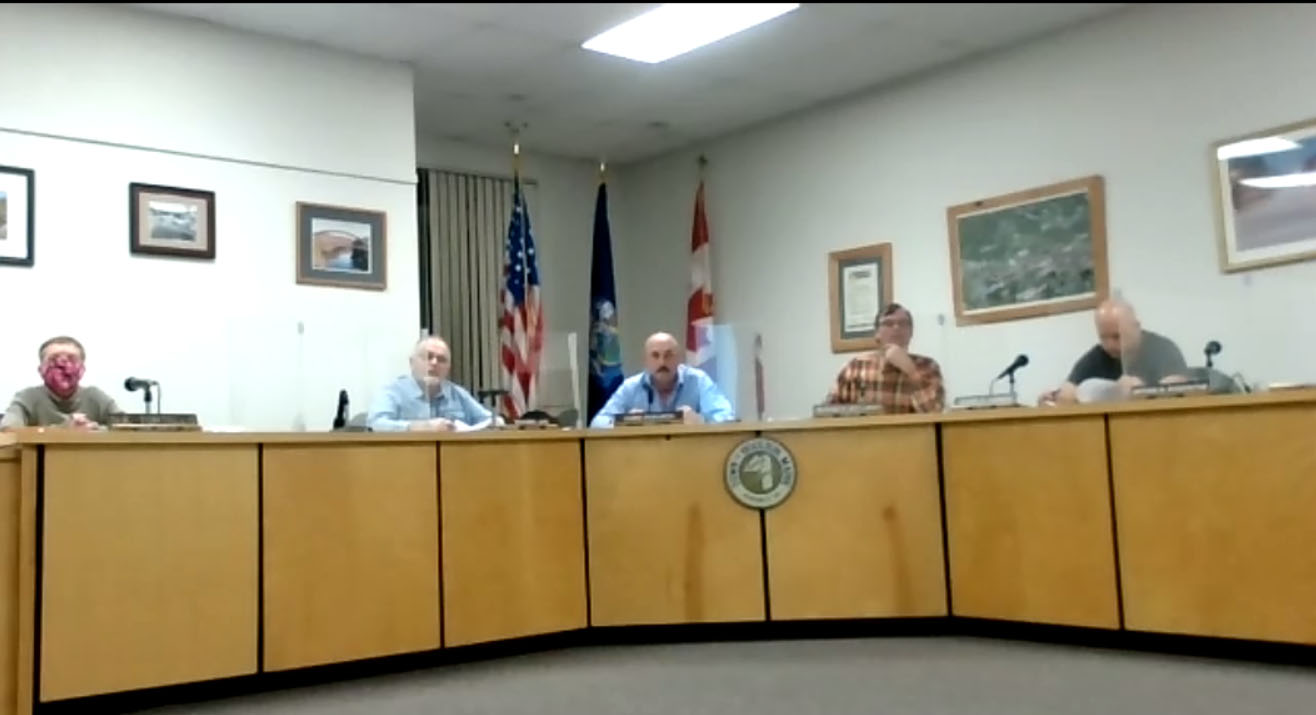
HOULTON, Maine — When citizens tuned into the back-to-back town council meetings on Monday Dec. 14, some may have noticed that several of their council members were not wearing face masks.
Seated at a table, separated from one another by Plexiglas, councilors Dennis Harmon, Bill McCluskey, Eddie Lake and council chairman Chris Robinson were not wearing masks when they appeared live on the Zoom stream. Council members Eileen McLaughlin and Sue Tortello, each sitting at opposite ends of the table, wore masks, while councilor Nate Bodenstab attended the meeting virtually.
Town Manager Marian Anderson said the councilors were masked when they entered the building and only removed them once they were seated at the table behind their Plexiglas barriers.
“We lead by example,” Anderson said. “The councilors came in through the rear door, and they came into the building wearing masks. If we didn’t have that [plexiglass], absolutely they would have been wearing them.”
On Dec. 11, three days prior to the Houlton council meeting, Maine Governor Janet Mills issued an executive order requiring that all indoor public spaces, regardless of size or venue, must deny entry to anyone who is not wearing a mask, in an attempt to curb the sharp increase in COVID-19 the state has seen in recent weeks.
“While we’re seated, we’re in our own space,” Robinson said.
Sue Tortello, one of the masked councilors, said while she did not agree with other councilors’ decisions not to wear masks, she was thankful they respected her own choice to wear one and kept their distance.
While all council members, together with Anderson, have been gathering together in the same room for council meetings for months, the meetings have only been accessible via Zoom for the general public since the start of the pandemic. Members of the general public, as well as the media, have not been allowed to attend the meetings in person.
As part of Monday’s council meetings, the town approved more than $10,000 in grants from the Putnam Charitable Trust to go towards the police and fire departments, as well as authorized write-offs of several personal property taxes from the last several years, including more than $12,000 for the now-closed Burger King location.







